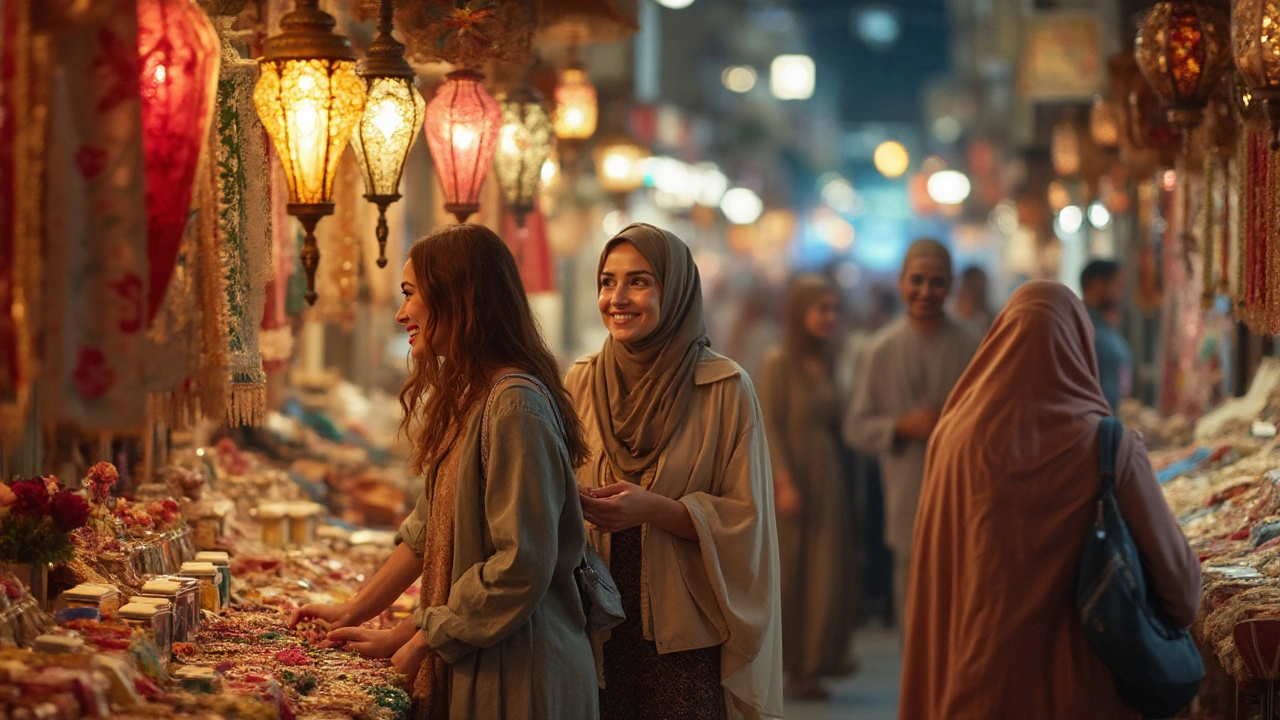You think glitzy towers and shiny Lamborghinis, but Dubai also comes with a rulebook—especially if you’re a woman. Forget everything you’ve heard in wild stories or from that friend of a friend who “almost got arrested.” The real thing is both stricter and more relaxed than most people expect. Whether you’re fascinated by Emirati culture or just planning a trip, here comes what genuinely matters if you’re a woman visiting or living in Dubai. Get ready—some parts might surprise you and save you from super awkward moments.
Understanding the Legal and Social Rules for Women
Dubai welcomes women—travelers, expats, and locals—with open arms, but there’s a fine line between what’s cool and what crashes the party. UAE law is rooted in Islamic principles but Dubai itself is more flexible compared to other places in the Gulf. Still, law is law. For example, public displays of affection (PDA) are a no-go: even holding hands can land you weird looks or worse in public spots. A quick peck? Save it for private.
When it comes to being out late, women don’t technically have curfews but you’ll rarely see local women wandering alone at midnight outside malls or hotels. Security is great—seriously, Dubai is ranked one of the safest cities anywhere for women, even at night, and crime rates remain super low. However, reporting harassment can feel complex due to how authorities approach such cases, so it’s smart to stick to busy, well-lit areas especially if you’re by yourself.
Laws about alcohol often catch tourists out. Women (and men) can drink at licensed bars, hotels, and clubs, but drunken behavior in public is a fast ticket to trouble. Even if you feel fine, staggering or yelling on the street isn’t just embarrassing—it’s illegal. Carrying alcohol outside a licensed venue is a big no unless you have a resident liquor license (which tourists don’t get), so finish your drinks where you bought them.
Sex outside marriage is illegal and while enforcement may not be in-your-face, there are stories of couples running into trouble at hospitals when seeking medical care for pregnancy or simply sharing a hotel room they aren’t married in. Most major hotels these days quietly allow “unmarried couples,” but small, family-owned places may frown on it.
The dress code drama? Women aren’t forced to wear abayas or cover hair unless entering a mosque or certain government offices, but tank tops and short skirts stick out in malls or public transport. On the beach or at resorts, bikinis are fine, but topless sunbathing is strictly out of bounds. Going topless or even wearing a thong bikini can mean fines or more. Always change back into street clothes before leaving the beach.
| Rule | What Actually Happens |
|---|---|
| PDA | Frowned on or fined—save for private |
| Dress in public | No abaya required, but avoid shorts/tank tops |
| Alcohol | Legal only in licensed venues, not on the streets |
| Safety | Very high for women, especially expats/tourists |
| Hospital visits if unmarried | Could be asked for marriage proof if pregnant |
Dress Codes: From Beaches to Burj Khalifa
You can spot women in nearly everything from abayas and hijabs to mini dresses and yoga pants—so what gives? Dubai’s dress code for women is all about context. In hotels, nightclubs, or at Western brunches, you’ll see short skirts, halters, and party attire. Head to a mall, government building, or a family-friendly park, though, and the rules change. Shoulders and knees covered is the unspoken rule for malls, museums, and restaurants outside resort areas.
Teenagers on TikTok might push the envelope, but visitors who go too far often get tapped on the shoulder by security—usually they’ll just ask you to cover up or hand you a scarf. Repeated offenses can lead to fines, though it’s pretty rare unless you’re causing a scene. Entering a mosque? You’ll be required to wear an abaya (often provided at the door) and cover your hair. Not religious? Doesn’t matter—respecting custom is non-negotiable here.
Swimwear is fine at hotel pools, private beaches, and select public beaches (like JBR or La Mer) but keep it modest outside, and no G-strings or topless sunbathing—ever. No, people aren’t lurking behind beach umbrellas, but CCTV is everywhere and locals call the police if someone ignores standards.
Gyms and sports: Anything goes in private gyms, but public running tracks or bike paths require you to dress more conservatively—think t-shirt and long shorts or leggings. If you’re unsure, layer up or pack a longish shirt in your bag just in case.
Shopping is its own adventure. Designer stores expect you to dress up—think business casual, not pajamas or beachwear, which can get you denied entry. Fancy brunch at the Burj Khalifa? Business chic all the way. If you’re hitting the souks in Old Dubai, flowy maxi skirts and covered shoulders help you blend in and avoid unwanted attention.
Summing up, always ask yourself: “Would my grandma raise an eyebrow at this?” If the answer is yes, maybe reconsider.

Rights, Work, and Everyday Life for Women in Dubai
The stereotype: women are all stay-at-home mothers, watched over by strict husbands. The reality? Women are everywhere—in boardrooms, hospitals, police, even as taxi drivers. About 43% of Dubai’s workforce is female, with Emirati and expat women working in every field. Girls and women end up at universities in higher numbers than men. Emirati women often take the lead in STEM and law, and there’s even a female astronaut: Nora Al Matrooshi.
But the UAE remains traditional when it comes to some family laws. Married women need their husband’s approval to sponsor children’s visas or travel with them. Yet, Dubai courts increasingly rule in favor of mothers in divorce and custody cases, especially for expats, and the system is modernizing quickly. Women drive, own property, run companies, and vote—no male chaperone needed.
At work, anti-discrimination laws exist but workplaces range from ultra-progressive tech startups to staid government offices where men tend to dominate. The pay gap exists, but it’s closing—sometimes you’ll even see companies actively hiring women for top management.
Pregnancy and maternity leave? Private companies must give women up to 45 days paid leave, while the public sector offers 90 days. Childcare is mostly private, so working mothers usually rely on family or nannies. If you’re unmarried and pregnant, legal risk remains: access to prenatal care for unmarried women has improved lately but can be complicated for expats, and always double-check paperwork. “Public decency” doesn’t always have a clear definition—neither for clothing nor for discussing topics like reproductive health.
Nightlife is a mixed bag. Women get free drinks or entry—the famous "Ladies Night" is everywhere—and safety at venues is high. Taxis and ride shares are often preferred over public transport late at night, though the Dubai metro is safe, air-conditioned and has women-only carriages up front.
Safety, Harassment, and Support Resources
Dubai’s safety stats put most other global cities to shame. Rapes, muggings, and even street harassment really are uncommon due to heavy surveillance and strict laws. That’s why the city is so popular with solo female travelers. Still, cultural harassment—think unwanted comments, persistent staring—isn’t totally stamped out, mostly from other expats, not Emirati locals.
If someone’s bothering you, a stern look or “la’ (no) usually does the trick. The police respond quickly and take reports seriously but be clear—mixed messages can complicate things, especially if alcohol is involved. There are women-only sections at beaches, parks, hospitals, as well as in the metro and some buses (clearly marked by pink signage).
The Dubai Foundation for Women and Children (DFWAC) offers hotlines, counseling, and legal support for abuse cases, and there’s solid expat support through embassies and social media groups. Women’s shelters are well-run and discreet. The government also runs “Aman” and “Ejeer” apps so women can instantly report harassment with live chat—super handy if you get stuck.
Even with cameras everywhere, don’t get careless. For example, avoid getting in unmarked taxis (always go for the cream or pink-roofed official ones). If someone crosses a line, mention you’ll call police—the threat alone is usually enough. Don’t assume Western relaxed rules carry over.
Reporting a crime, however, can sometimes turn tables on the victim—if the suspect accuses you back of indecency. It’s rare but possible, so have embassy contacts handy for emergencies.

Tips for Visiting and Living as a Woman in Dubai
Check dress code signs at mall entrances—they’re not just for show. Always keep a scarf or shrug in your bag for sudden mosque stops or chilly malls (air conditioning can be Arctic sometimes). Download Careem or Uber for late-night trips instead of flagging taxis on the street. Don’t bring large amounts of prescription medications without original packaging and doctor’s note—some common meds are banned or need approval.
Public toilets are clean and plentiful, but sometimes lines for women’s restrooms can get long at events. Carry tissues for deserts or souks—some places skip the toilet paper.
Want to go jogging or walk alone at night? Tourist hotspots are usually fine, but use the women-only spaces on transport if you feel uncomfortable. Leering and catcalling are rare, but if it happens, ignore or move to a busier location.
Worried about connecting with others? Lots of expat women’s groups thrive on Facebook, Meetup, and Whatsapp, making it easy to make friends, ask questions, or even snag invites to brunches or beach clubs.
If you’re dating, keep it private—especially in public parks or family spaces, where holding hands might annoy conservative locals. Hotels rarely ask for proof of marriage anymore, but double-check before booking budget or old-school hotels. Don’t expect everyone to speak English perfectly; learn “shukran” (thank you) and “la” (no)—it earns respect fast.
Dubai rules for women—they protect you and also shape Dubai’s unique blend of glam and tradition. It’s a city where you can join the 3am breakfast club, shop for gold, or ride camels in the desert all in one day. Just know where, when, and how much to shine.
